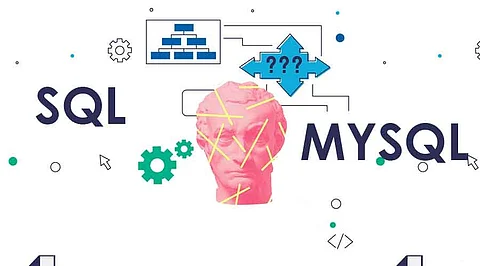

In the world of databases and data management, SQL and MySQL are two terms that are often used interchangeably but refer to distinct concepts. Understanding the differences between SQL and MySQL is fundamental for anyone working with databases or considering them for their applications. In this guide, we will provide a straightforward comparison to help you differentiate between SQL and MySQL.
SQL, or Structured Query Language, is a domain-specific language used to communicate with and manage relational databases.
SQL is not a database itself but rather a standardized method for interacting with databases.
It was developed in the 1970s and has since become a widely adopted language for managing data.
SQL is used for various database operations, such as querying, updating, and managing data.
It is a standard language with variations (dialects) for different database management systems.
SQL is primarily used for relational databases, which organize data into structured tables.
MySQL is an open-source Relational Database Management System (RDBMS).
It is one of the most popular RDBMS, known for its reliability, scalability, and speed.
MySQL allows users to create, manage, and interact with relational databases using SQL.
MySQL supports SQL as its query language, allowing users to work with relational databases seamlessly.
It offers features such as data security, transaction management, and indexing.
MySQL is used in a wide range of applications, from simple websites to large-scale enterprise systems.
SQL is a language used to interact with databases and is not a database system.
MySQL is a specific database management system that implements SQL as its query language.
SQL is a standardized language, making SQL queries relatively portable across different database systems.
MySQL is a specific RDBMS, and while it primarily uses standard SQL, it may have its own extensions or optimizations.
SQL, as a language, is open and not bound to any specific vendor. It is widely used across various database systems, both open source and commercial.
MySQL, on the other hand, is an open-source RDBMS, meaning it is available for free and has an active community of developers.
MySQL, as a full-fledged RDBMS, includes features like data storage, security, user access control, and transaction management.
SQL, being a query language, does not provide these features on its own; it relies on the underlying database system to implement them.
Use SQL when you need to communicate with any relational database system.
Ideal for those who want to work with databases but are not tied to a specific RDBMS.
Choose MySQL when you require a robust, open-source RDBMS.
Suited for web applications, data-driven websites, and various software projects.
In conclusion, SQL and MySQL are related but fundamentally different concepts. SQL is a language for querying and managing databases, while MySQL is a specific open-source Relational Database Management System that implements SQL. Understanding the distinctions between SQL and MySQL is crucial when working with databases, as it guides the choice of the right tools and technologies for your specific data management needs. Both SQL and MySQL play essential roles in the world of data, and knowing how to leverage them can significantly enhance your database-related tasks.
Join our WhatsApp Channel to get the latest news, exclusives and videos on WhatsApp
_____________
Disclaimer: Analytics Insight does not provide financial advice or guidance. Also note that the cryptocurrencies mentioned/listed on the website could potentially be scams, i.e. designed to induce you to invest financial resources that may be lost forever and not be recoverable once investments are made. You are responsible for conducting your own research (DYOR) before making any investments. Read more here.
